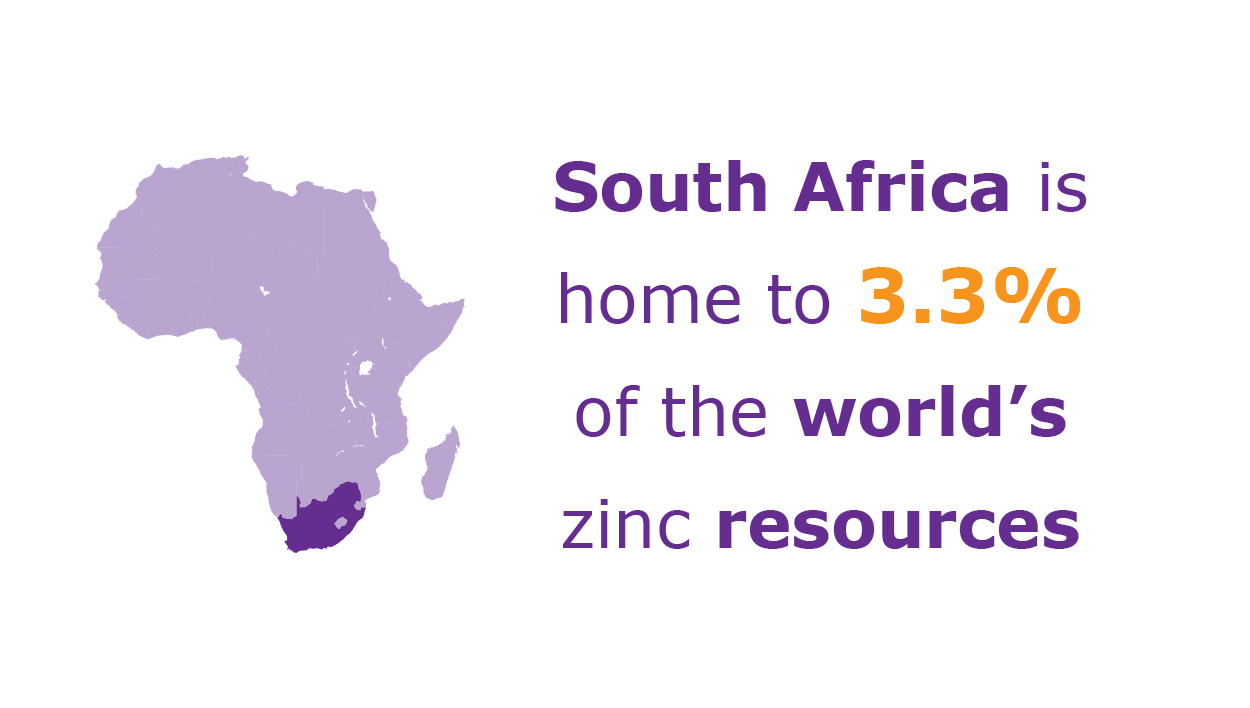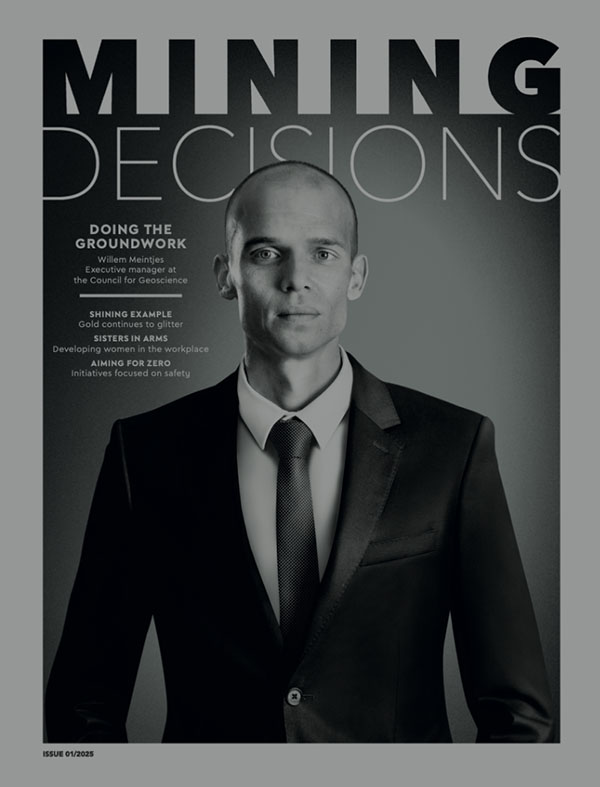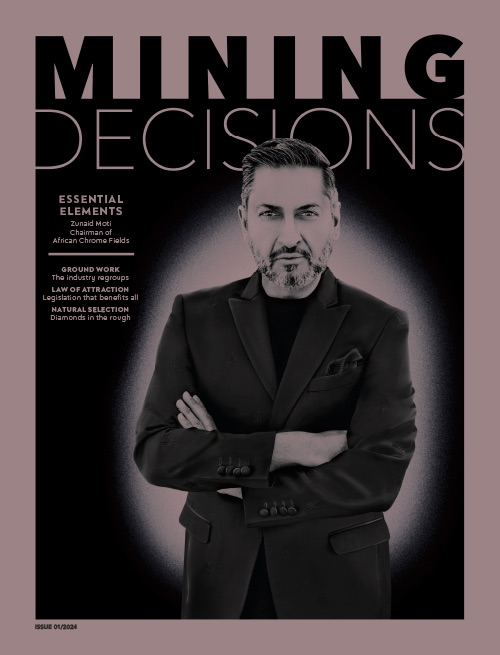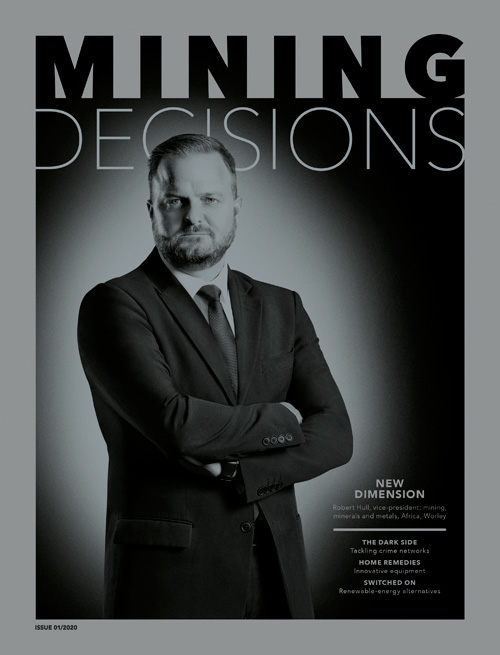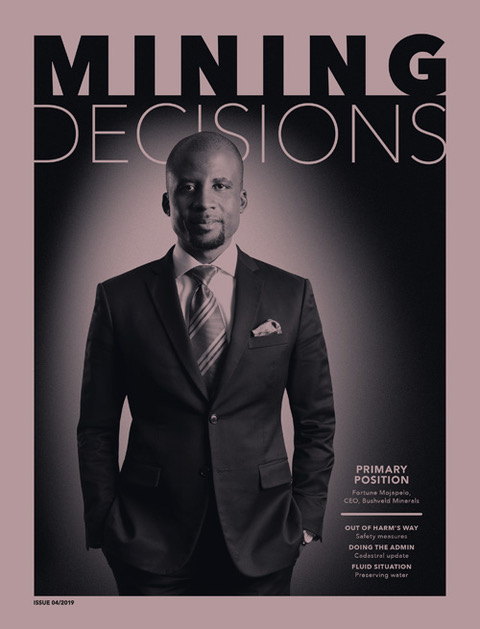Thanks to its large deposits of bauxite, iron ore, gold and diamonds, Guinea is on the threshold of what could be a major mining boom. Since the country’s first free and fair elections in 2010, not only has the economy stabilised and inflation decreased by more than 10%, the effective sweeping reforms across all sectors of industry have motivated a steady pace of investor interest, not least of which is home-grown.
Among those investors is Tiguidanke Camara, former fashion model turned mining entrepreneur. Her influence has been exceptional. Involved on all fronts with local communities where the two companies she heads as chairman and CEO – Tigui Mining Group (TMG) and Camara Diamond & Gold Trading Network (CDGTN) – operate she has contributed significantly in presenting the positive face of her country to the world.
The leap from fashion to mining is not an obvious one, especially given that Guinea has less than 100 members of Women in Mining Guineé, an association that Camara helped to establish, under the auspices of Women in Mining International. Yet mining is a burgeoning sector for female businesspeople.
‘Women know the value of development, and in Guinea it is easily understood that mining is the main motivator of growth.
‘Transitioning to the mining sector is another way of following my passion; the difference being that my current work benefits my people more,’ says Camara.
‘With TMG, I’m showcasing Africa, Guinea and mining in a more positive light. It is crucial for investors to understand the nuances of Africa. I am culturally considered a “daughter” in the villages where we operate. I am therefore cognisant of the needs of those villagers and so ensure that employment is sourced locally to guarantee economic independence.
‘I balance this objective by guaranteeing that our employees have the proper qualifications and training.’
It has never been easy to secure licences for mining in Guinea, and Camara says this remains a challenge. In 2010, however, she successfully secured eight licences.
‘The requirements to develop new mining projects in Africa is evolving rapidly,’ she says. ‘When you work with government officials, you have to ask the right questions and make sure you get the right answers. This requires an enormous amount of knowledge and the use of reputable experts, like geologists, who can fill the knowledge gap.
‘I’ve been fortunate to have guides who have been with me throughout this journey – they’ve broken ground with me, helped plan the exploration phase, and have even assisted with fund raising.’
TMG is different from most explorative operations because it has a strong focus on corporate responsibility and is a woman-led entity. Camara anticipates that TMG’s growth will most likely come from mining gold (developing five semi-industrial exploitation licences awarded to its subsidiary junior mining exploration company CDGTN in a 76 km2 area in Siguiri), and diamonds (three exploration licences in a 280 km2 area of potential in Guinea’s Kérouané-Macenta region).
‘I’m showcasing Africa, Guinea and mining in a more positive light. It is crucial for investors to understand the nuances of Africa’
She says that it’s easier to mine gold because diamonds require a more complex approach. ‘Ultimately one also has to look at bullion, which provides a much faster return and enables a transformation process to take place.’
Located in northeast Guinea, the Siguiri project is set in a basin of Proterozoic Biri–mian rocks intercalated with layers of black schist, sandstone and limestone. Situated some 800 km northeast of the Guinea capital, Conakry, the site already hosts other gold developments such as AngloGold Ashanti’s Societé Ashanti Goldfields and Nordgold NV.
The Kérouané-Macenta area boasts the highest percentage of the country’s alluvial and hard rock diamond potential. The permits issued to CDGTN are for the Gbonodou district, which has a history of significant diamond mineralisation and is also the most prolific source of mined diamonds in Guinea, presenting high grade and shallow deposit characteristics.
Camara is a regular visitor to villages in these areas, accompanied by TMG geologists. She’s not afraid to get her hands dirty, physically participating in not just the exploration process, but also assisting the locals in their agricultural activities.
‘You need to first consider the people that live on, and surround, your mining sites,’ says Camara. ‘We must learn to co-exist in harmony with the locals and their environment. That’s sustainability and shows strong leadership. Communities hold the power to prevent companies from efficiently conducting their mining operations.’
In the search for investors, Camara is uncompromising if they do not embrace TMG’s deeply rooted social consciousness.
‘TMG takes a smart approach to management and marketing by using new technologies to efficiently market and spread our message. Locals are connecting more with the rest of the world, and are becoming better informed about their rights and global trends. They, along with their governments, expect responsibility and accountability from their mining partners and seek opportunities to improve their circumstances through training and infrastructure development. If you keep your commitment to the community, your business will be successful.’
There are still many challenges for the region to overcome. Camara is well aware of the global financial crisis and the impact of the Ebola epidemic on global demand and perceptions of West Africa. ‘After our exploration is complete, we’ll undertake much-needed local infrastructure operations, including showing an emphasis on health and education, and supporting women in setting up ancillary business services.
‘We’ll be hiring a strong local workforce in 2015. Right now things are moving rather slowly but this hasn’t stopped us expanding into Côte d’Ivoire. TMG also operates within the agriculture, aviation and real-estate sectors, so we have many opportunities.’
‘You need to first consider the people that live on, and surround, your mining sites. We must learn to coexist in harmony with the locals and their environment. That’s sustainability and shows strong leadership’
As the daughter of a politician, Camara is as comfortable around a boardroom table as she is in the field. ‘While I haven’t “officially” been involved in the contribution to the Guinean mining revolution, government is well aware of my intentions,’ she says. ‘I’ve been participating in forums to engage stakeholders on the development of the mining industry and I’ll continue to promote West Africa’s economic growth, focusing especially on Guinea and its mining activities.
‘As the sole woman [-owned] mine exploration company in Guinea, and one of the youngest women mining executives on the continent, it’s important to create a fully enabling environment as a way of increasing women’s participation in the sector.’
Camara openly admits that the journey hasn’t been easy. She has pushed through barriers and credits her ‘never give up’ attitude for her success. ‘As a role model, you have to be a pioneer in order to show others what is possible if you have passion. Young women look up to me and this trust motivates me to achieve my goals while giving back to the community.
‘I’ve had to earn respect in a male-dominated industry, and because I’ve come from a fashion background it hasn’t been easy. You have to be bold, find ways to reach the right people and ask them what they can do for you.’
Moving between her base with her family in New York and the continent, Camara intends to expand TMG across West Africa into iron ore and oil exploration.
‘I realise and embrace the idea that I represent my country in several capacities. Investors that wish to partner with TMG must be focused equally on profit-making and corporate responsibility.
‘Every decision needs to focus on the shared goals and vision for the mine, the community and all stakeholders.’
By Kerry Dimmer
Image: Marc Baptiste


